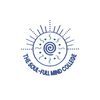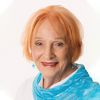
Essendon Natural Health
Clicking on the Send Me Details Now button opens an enquiry form where you can message Essendon Natural Health directly
Acupuncture & Chinese Medicine
Focus areas
What is acupuncture and how does it work?
Acupuncture involves the insertion of very thin hair like needles into specific areas of the body. These areas of the body can be conventional acupuncture points, muscular trigger and motor points, and into specific superficial spinal nerve zones on the body called dermatomes.
Once the needle enters the skin, they can stimulate the local nerve endings and/or muscle fibres in this region stimulating a healing response. Acupuncture has been shown to increase blood supply, balance stress hormones, moderate local inflammatory pathways, release contracted muscles, and stimulate parts of the brain that influence other areas of the body.
In Australia, Acupuncturists and Chinese Medicine Practitioners are government registered and require a minimum of a four-year bachelor degree to practice, including studies in Chinese medicine, anatomy, physiology, pathology, and general medical differential diagnosis. Acupuncturists are primary healthcare practitioners and are trained to recognise conditions that require medical referral. They are also trained to perform standard medical examinations of the musculoskeletal, cardiovascular, respiratory and nervous systems.uscles, and stimulate parts of the brain that influence other areas of the body.
Does acupuncture hurt?
At Essendon Natural Health, we use only the very best acupuncture needles on the market in Australia. This ensures the most gentle acupuncture experience possible. We also practice very gentle types of acupuncture such as classical Japanese acupuncture, which is beneficial for needle phobic peoples, children, and those who are very sensitive.
How should I feel after I have acupuncture?
Some people report a heightened sense of energy directly after treatment, while others can feel an overwhelming urge to sleep. In these cases, it it due to the change in stress hormones and chemicals in the brain that are experienced during a treatment. If your baseline energy levels are low you will notice the lack of adrenaline keeping you going. If this happens to you, rest well and you will experience a feeling of calm and well being.
What kind of Chinese herbal medicines are used?
All of our herbs are specifically sourced from GMP approved farms and are tested for heavy metals, pesticides and contaminates to ensure a high level of safety.
We have two types of herbs that we use at the Essendon clinic, granules and capsules. Granules come from raw herbs that have been cooked, concentrated and dried into a water soluble form. All you have to do is add hot water and your herbs are ready. Capsules are sometimes used as these are more mild and are easier to take for those with sensitive taste buds.
What makes our Acupuncturist’s and Herbalists so special?
At Essendon Natural Health, we have three Acupuncturists Robert and Sonia are also herbalists, whist our Acupunturist Alicia is also a nutritionist.
Robert Gentile, who has been involved with acupuncture and natural medicine for over a decade, has specialist post graduate training in Natural Fertility and IVF Support, Facial Rejuvenation Acupuncture, and Chemotherapy/Radiotherapy Support. He thus heads the Natural Fertility and IVF Support Program here at Essendon Natural Health, as well as the Women’s Health and Pregnancy Care Program and the Oncology Support Program.
Alicia Ginter, who is also a nutritionist has a key area of focus in women's and family health as well as fertility, IVF and pregnancy / post partum support.
Sonia Millett, has a clinical area of focus working with couples with fertility concerns, supporting clients during IVF and throughout pregnancy.
What symptoms can Acupuncture and Chinese Medicine be used for?
In 2017, the Acupuncture Evidence Project was published showing that there is good scientific evidence that acupuncture is effective in the management of 46 conditions (McDonald & Janz, 2017). All our acupunturists commonly assist in the management of a large variety of symptoms.
References:
McDonald J, Janz S. The Acupuncture Evidence Project: A Comparative Literature Review (Revised Edition). Brisbane: Australian Acupuncture and Chinese Medicine Association Ltd; 2017. www.acupuncture.org.au
Nearby Practitioners
View all
Qt
Focus areas

Holistic Psychology
Focus areas

The Soul-Full Mind College
Focus areas

Annie O'Grady, Certified EFT Practitioner and Master Trainer
Focus areas

Beth Little - Mind and Body
Focus areas
Click on Send Me Details Now to get started
Send Me Details Now